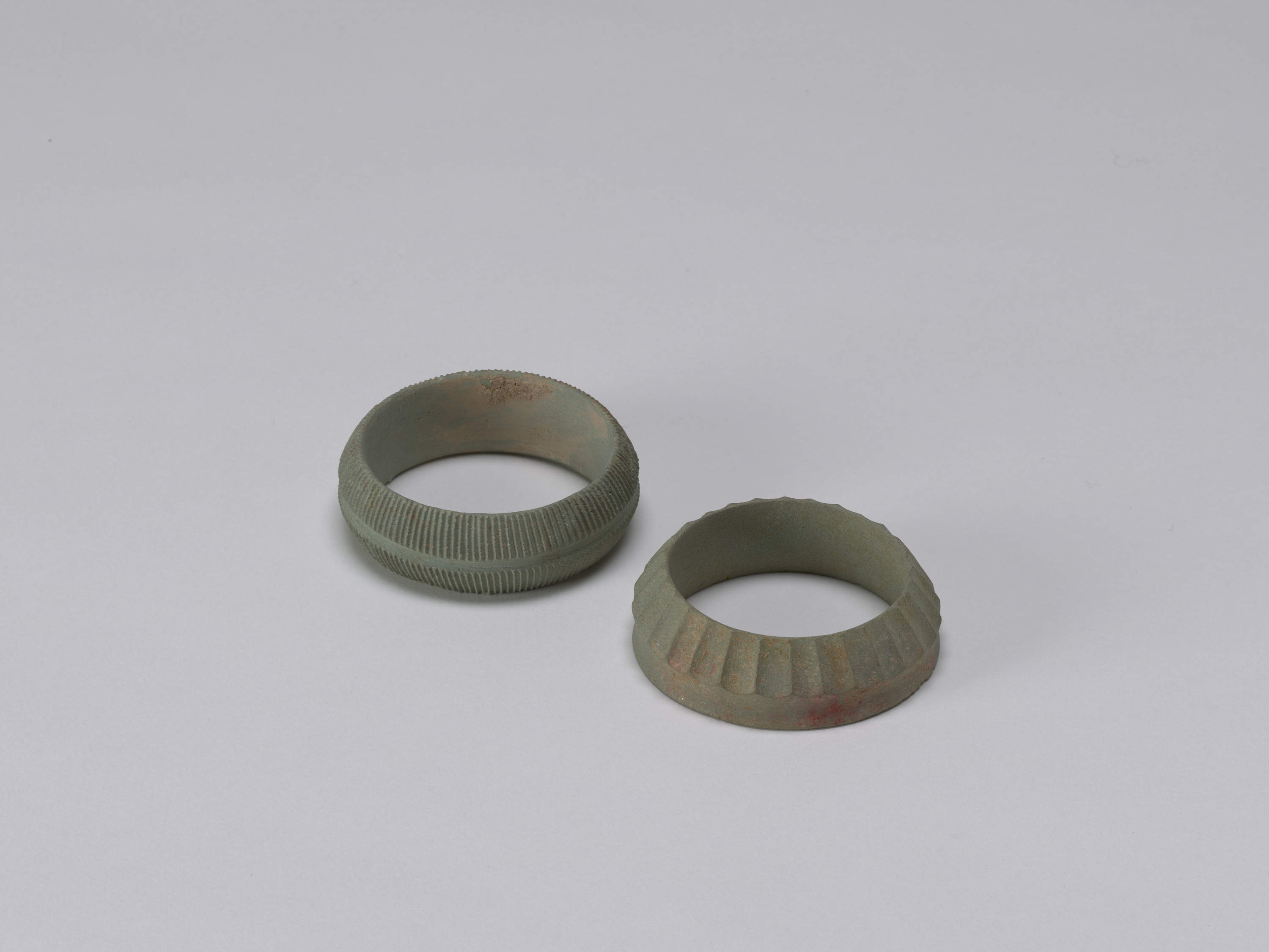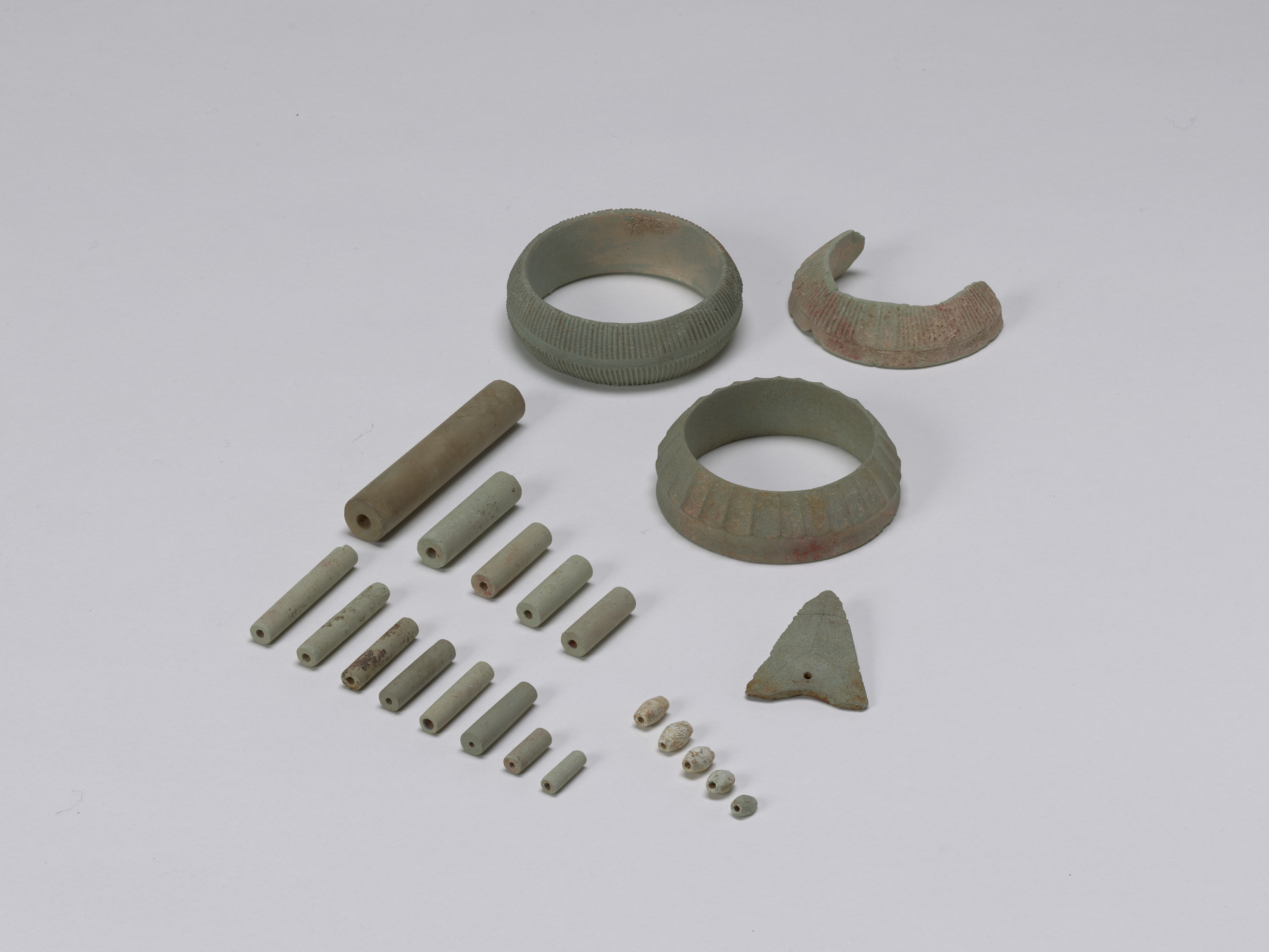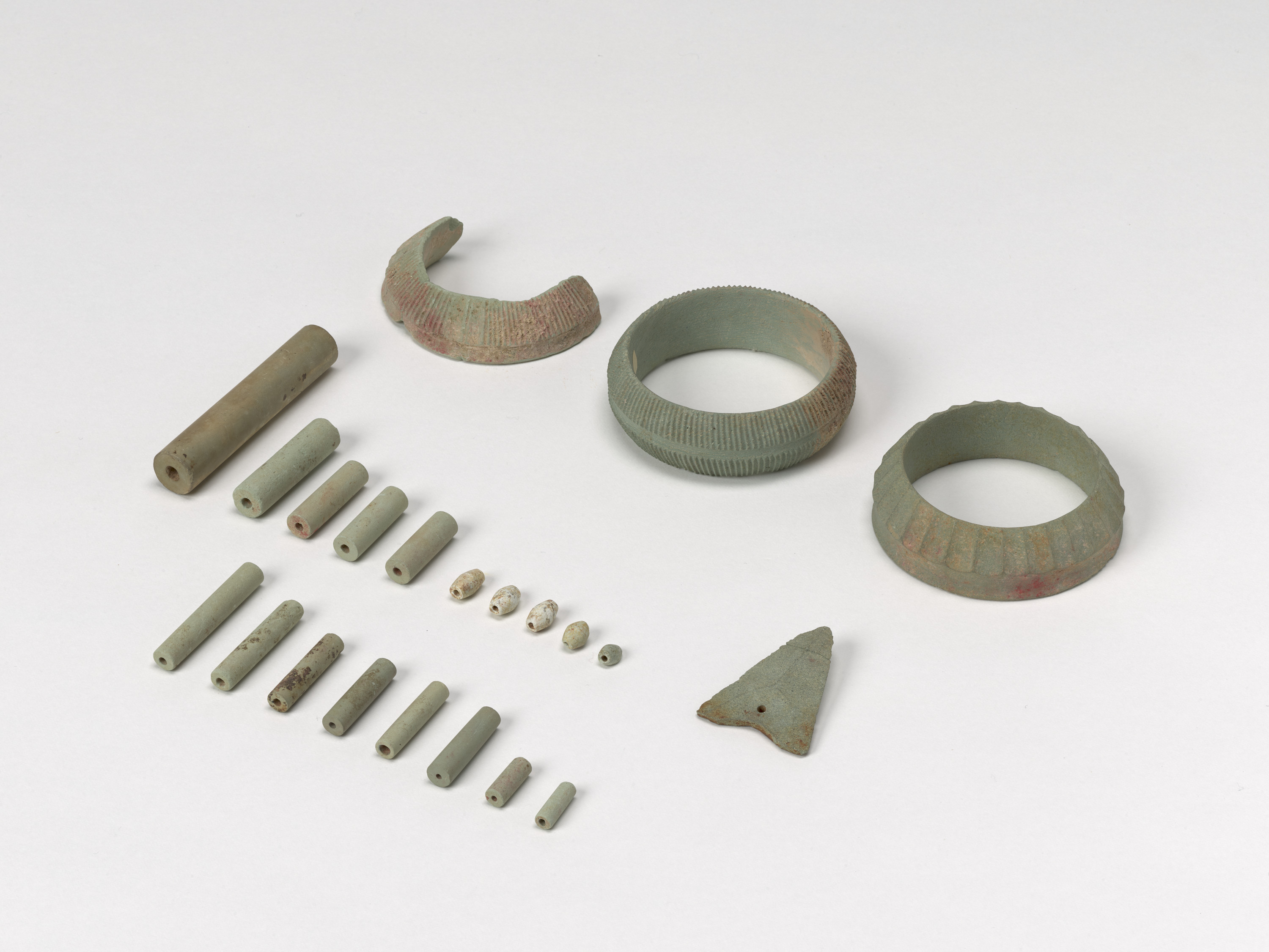- TOP
- Stone Artifacts
Overview
Stone Artifacts
- Museum No.
- JK269
Showing 1-6 of 3
| Title | Stone Artifacts |
|---|---|
| Designation | |
| Artist | |
| Category | Archaeology(J), Kofun Stone Objects |
| Country | Japan |
| Period | Kofun (Tumulus) |
| Century | |
| Year | |
| Quantity | |
| Materials | |
| Dimensions | |
| Inscription by | |
| Signature/Seals Etc | |
| Donor |
This object may be one within a set or the title of a set. To see all objects in the set, perform a Category Search by the Museum Number below, entering numerals only before the hyphen.












Various types of stone artifacts were made in the first half of the Kofun period (ca. 250-ca. 600) and used for burials and rituals. For example, a miniature chair, which is a reproduction of one used by a person of the rank of Great King, was found in the Mount Mesuri Tumulus in Sakurai, Nara Prefecture. Although few in number, two types of stone containers, one made of jasper and the other made of soft stone, have also been excavated from tumuli of the early Kofun period. Archeological research at the Tomiomaruyama Tumulus has turned up a number of stone artifacts other than containers, including objects in the shape of a zither bridge and reproductions of tools such as ax heads, knives, weapons, and chisels. The Raidenyama Tumulus in Tochigi Prefecture has yielded weapon-shaped objects, such as armor and shields as well as reproductions of bronze mirrors, have been excavated. Furthermore, a headrest, said to have been excavated in Namegawa Town, Chiba Prefecture, was used to place under the head of the dead buried in the tumulus. Ornaments were probably placed in small holes around the headrest rim. Although such stone artifacts were believed to be relics particular to Japan during the Kofun period, similar ones have been recently excavated from Jukmak-dong in Buan-gun, Jeolrabuk Province, Korea.
Japan-Kofun (Tumulus)